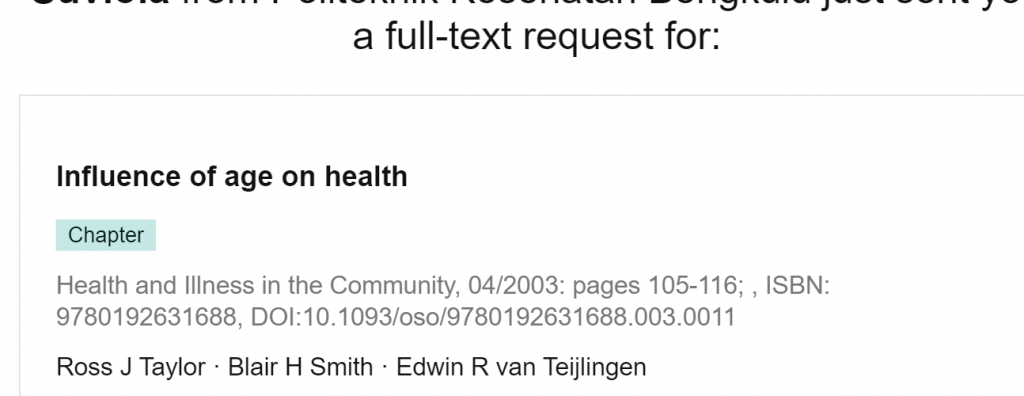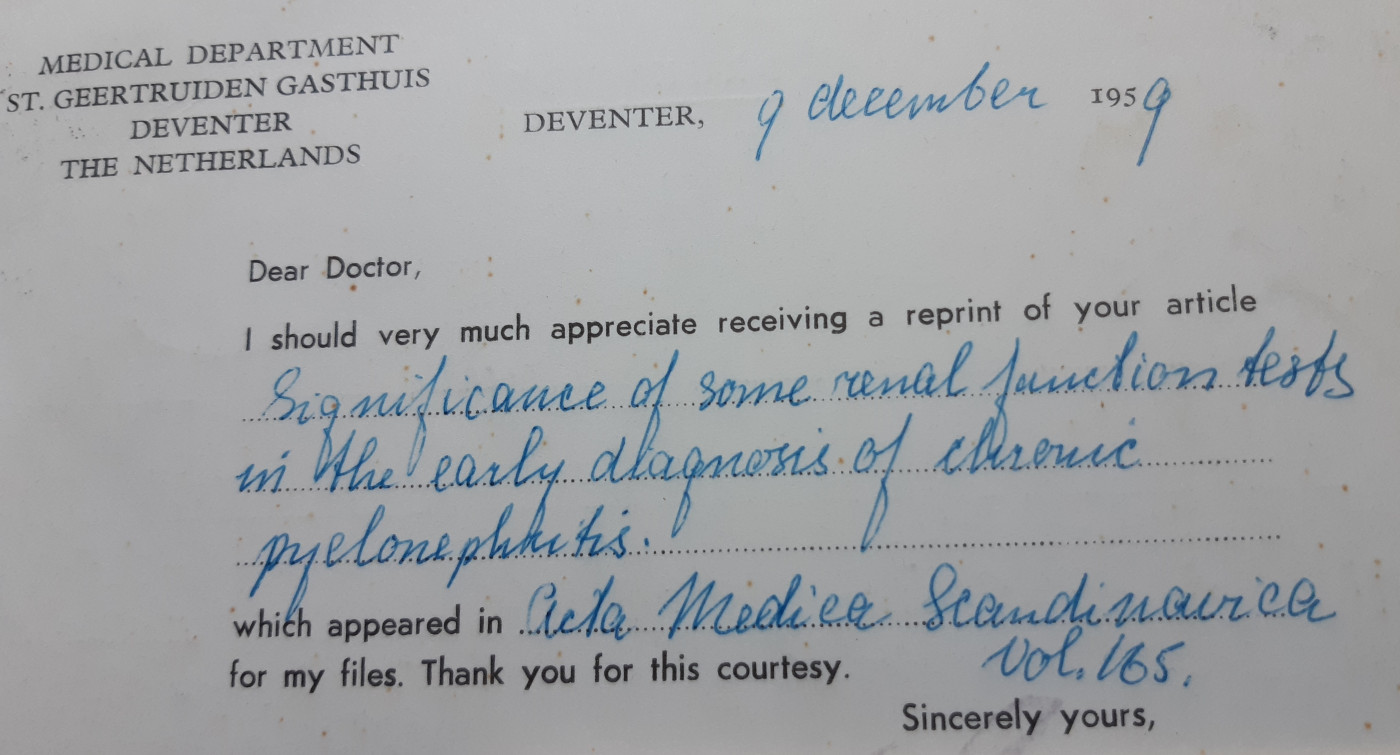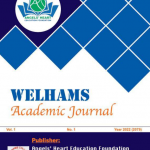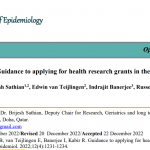 Any publishing academic will irregularly receive emails for copies of their papers, usually for papers which researchers or students can’t access through their own institution. Different universities have different expensive deals with publishers, and especially for universities in low-income countries this can be very limiting. Apart from requests for papers I also receive email requests for book chapter which are part of commercial textbooks, or people asking for a PDF, i.e. a free electronic copy, of the whole textbook. Recently I have also had a couple of requests for papers which are already freely available as Open Access publications. I assume the latter are simply requests from lazy students, who searched a bibliographic data base found several (many?) relevant papers. Without too much thinking they send quick automated email through ResearchGate, which is less work that searching for each actual Open Access paper online.
Any publishing academic will irregularly receive emails for copies of their papers, usually for papers which researchers or students can’t access through their own institution. Different universities have different expensive deals with publishers, and especially for universities in low-income countries this can be very limiting. Apart from requests for papers I also receive email requests for book chapter which are part of commercial textbooks, or people asking for a PDF, i.e. a free electronic copy, of the whole textbook. Recently I have also had a couple of requests for papers which are already freely available as Open Access publications. I assume the latter are simply requests from lazy students, who searched a bibliographic data base found several (many?) relevant papers. Without too much thinking they send quick automated email through ResearchGate, which is less work that searching for each actual Open Access paper online.
 It did not always use to be that easy to approach an academic for a copy of their scientific paper. When I started as a PhD student, before the widespread use of the internet, if your university library did not have a subscription to the journal you were looking for, you would write a short letter to an academic author, post the letter, and if your were lucky, receive a printed copy of the requested paper in the post a few weeks later. The more established academics would have pre-printed postcards to speed up the process of requesting an academic paper. The photo of the 1959 (for the record this was before I was born!) shows one of such cards from a doctor based in the Netherlands. The effort involved meant you asked only for papers you were pretty sure where central to your research, you would not do the equivalent of sending out 40 emails, hoping to get PDFs of six or seven papers relevant to your essay topic.
It did not always use to be that easy to approach an academic for a copy of their scientific paper. When I started as a PhD student, before the widespread use of the internet, if your university library did not have a subscription to the journal you were looking for, you would write a short letter to an academic author, post the letter, and if your were lucky, receive a printed copy of the requested paper in the post a few weeks later. The more established academics would have pre-printed postcards to speed up the process of requesting an academic paper. The photo of the 1959 (for the record this was before I was born!) shows one of such cards from a doctor based in the Netherlands. The effort involved meant you asked only for papers you were pretty sure where central to your research, you would not do the equivalent of sending out 40 emails, hoping to get PDFs of six or seven papers relevant to your essay topic.
Prof. Edwin van Teijlingen

 New paper on ‘writing a reflective paper’
New paper on ‘writing a reflective paper’ Paper published on ‘living evidence’
Paper published on ‘living evidence’ Last BU paper of 2022
Last BU paper of 2022










 Beyond Academia: Exploring Career Options for Early Career Researchers – Online Workshop
Beyond Academia: Exploring Career Options for Early Career Researchers – Online Workshop UKCGE Recognised Research Supervision Programme: Deadline Approaching
UKCGE Recognised Research Supervision Programme: Deadline Approaching SPROUT: From Sustainable Research to Sustainable Research Lives
SPROUT: From Sustainable Research to Sustainable Research Lives BRIAN upgrade and new look
BRIAN upgrade and new look Seeing the fruits of your labour in Bangladesh
Seeing the fruits of your labour in Bangladesh ECR Funding Open Call: Research Culture & Community Grant – Apply now
ECR Funding Open Call: Research Culture & Community Grant – Apply now ECR Funding Open Call: Research Culture & Community Grant – Application Deadline Friday 12 December
ECR Funding Open Call: Research Culture & Community Grant – Application Deadline Friday 12 December MSCA Postdoctoral Fellowships 2025 Call
MSCA Postdoctoral Fellowships 2025 Call ERC Advanced Grant 2025 Webinar
ERC Advanced Grant 2025 Webinar Update on UKRO services
Update on UKRO services European research project exploring use of ‘virtual twins’ to better manage metabolic associated fatty liver disease
European research project exploring use of ‘virtual twins’ to better manage metabolic associated fatty liver disease